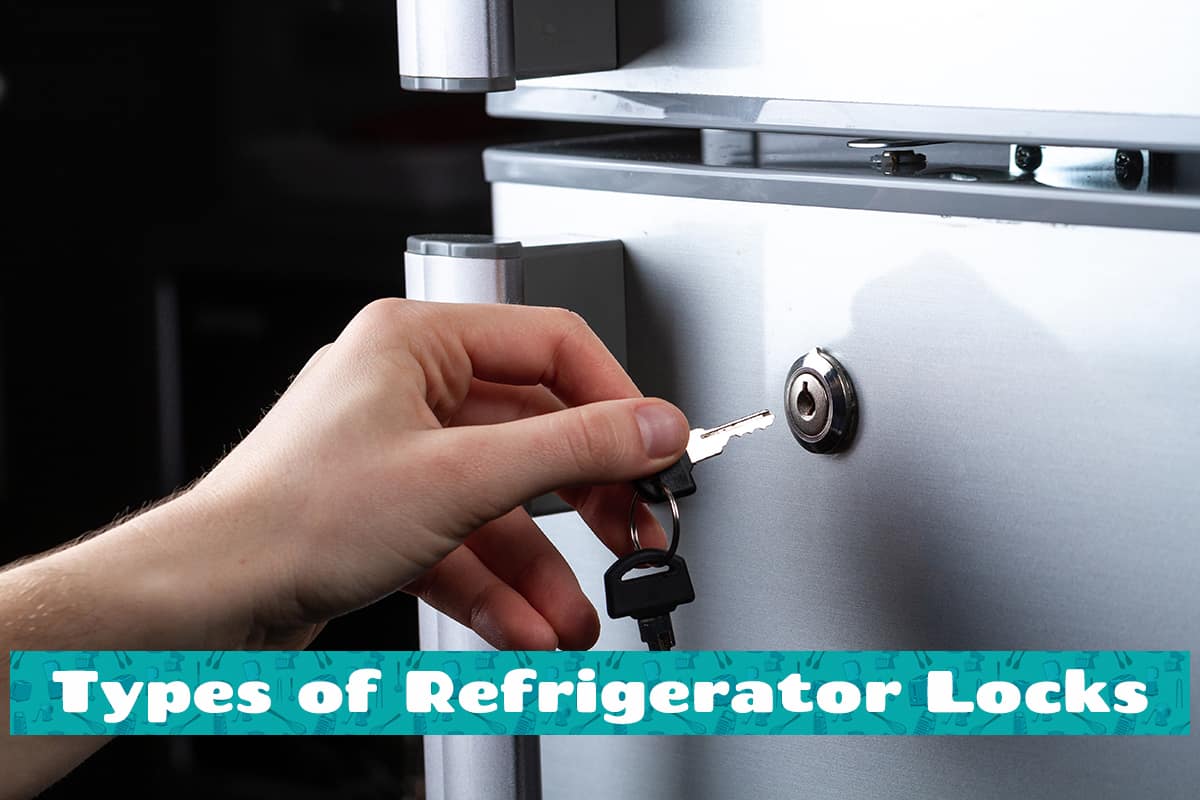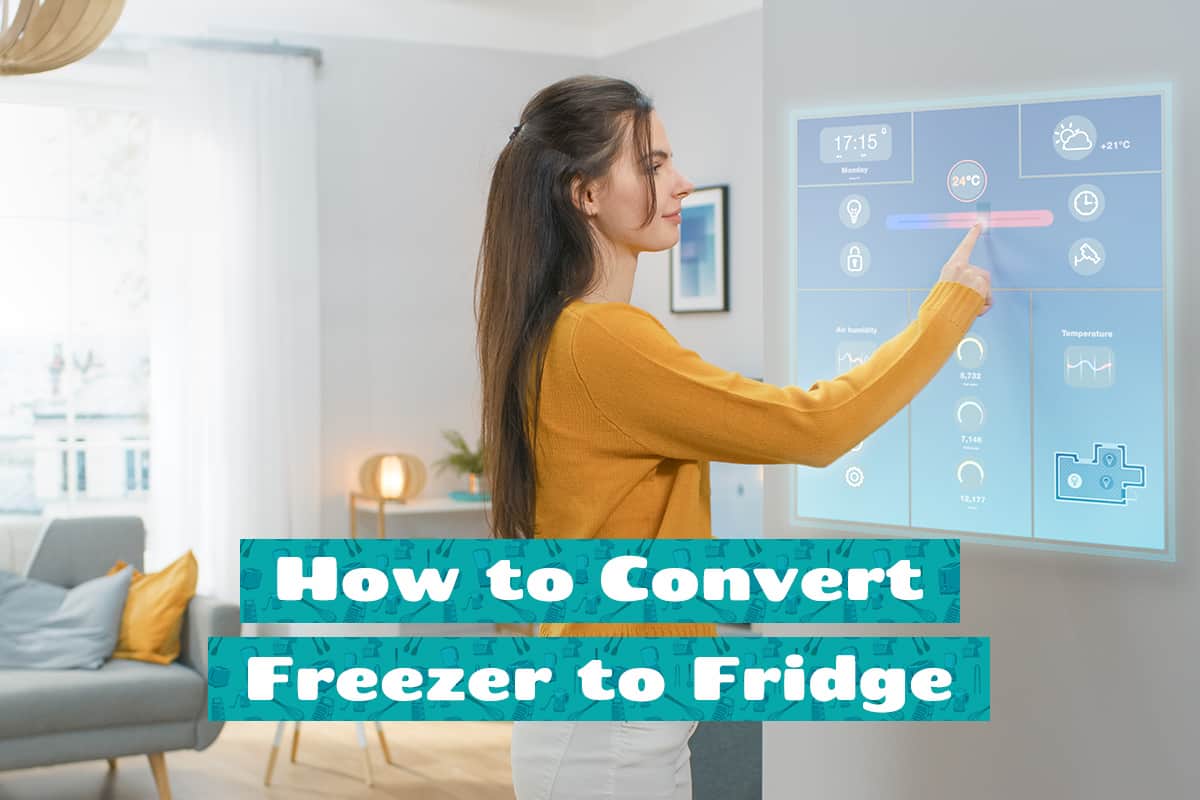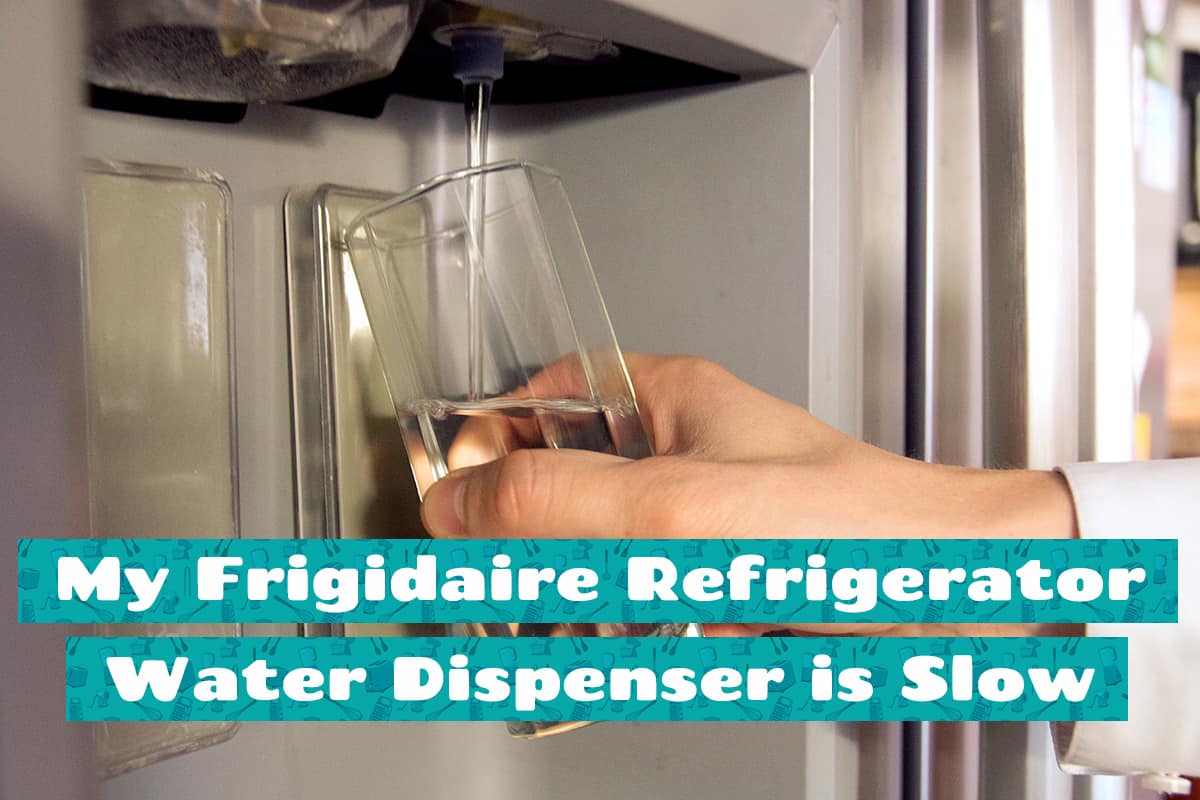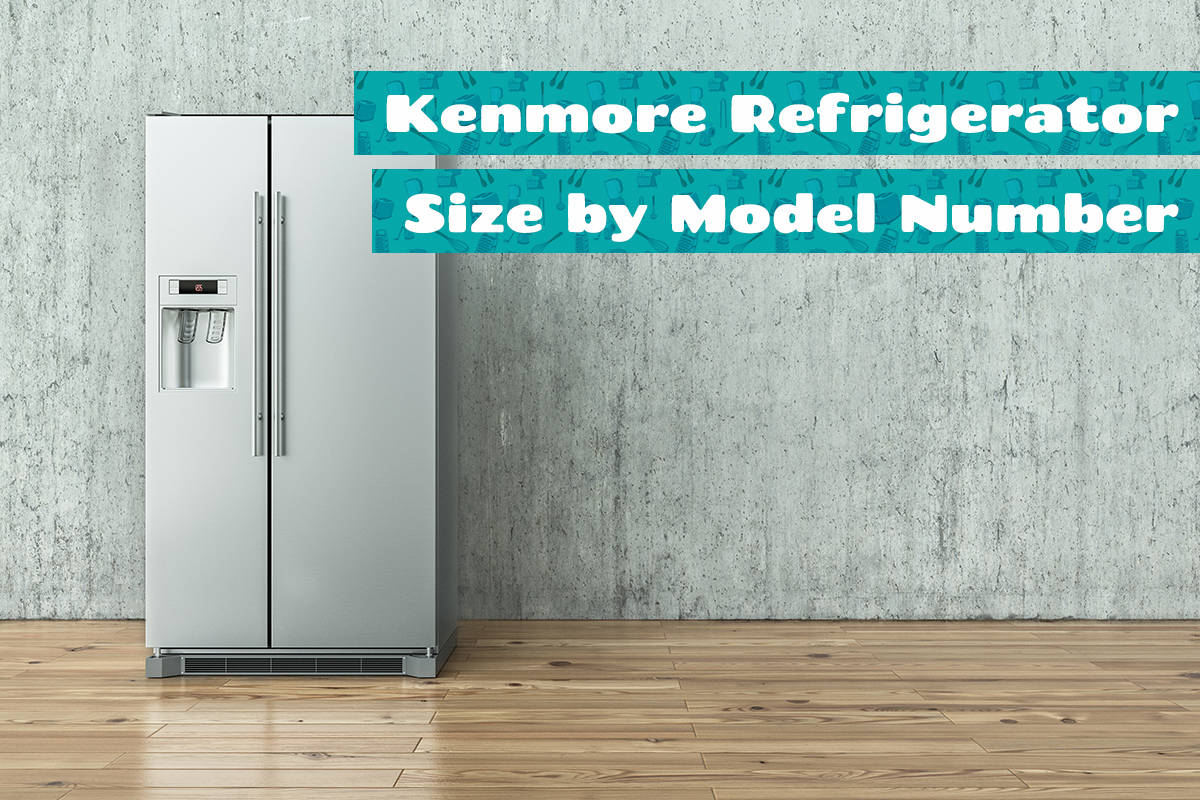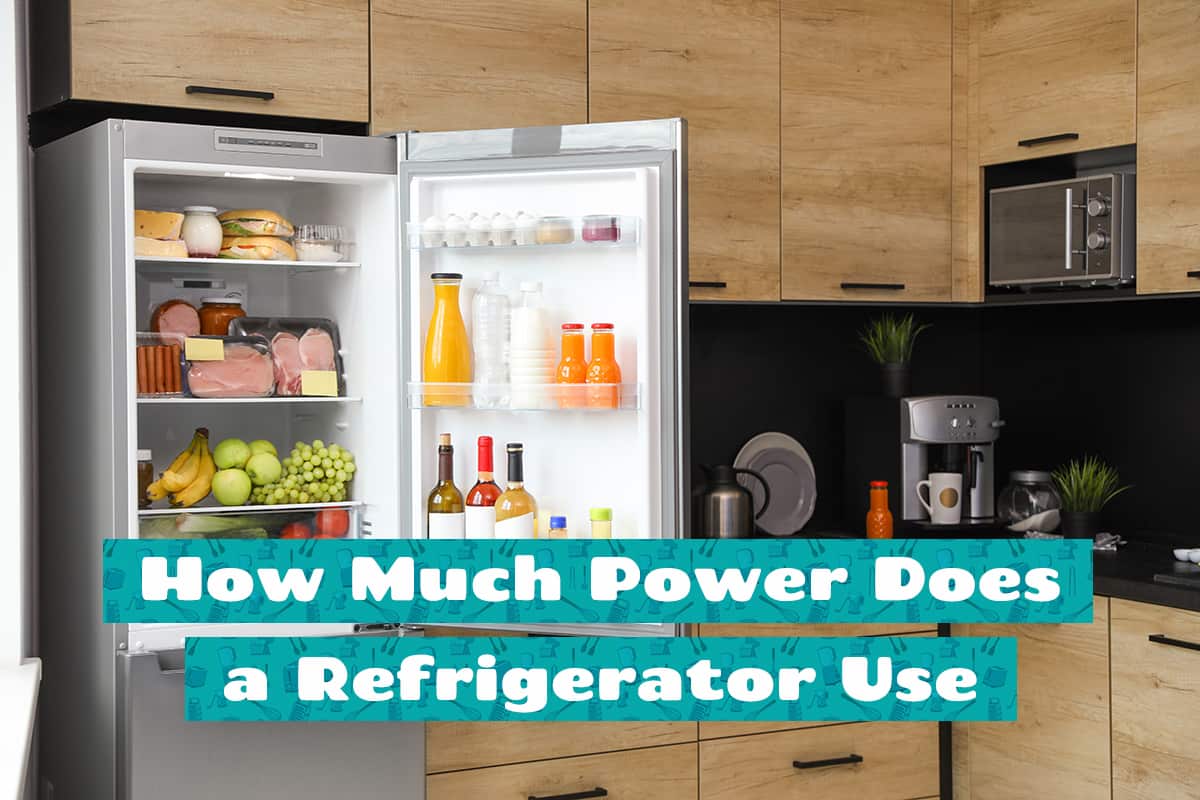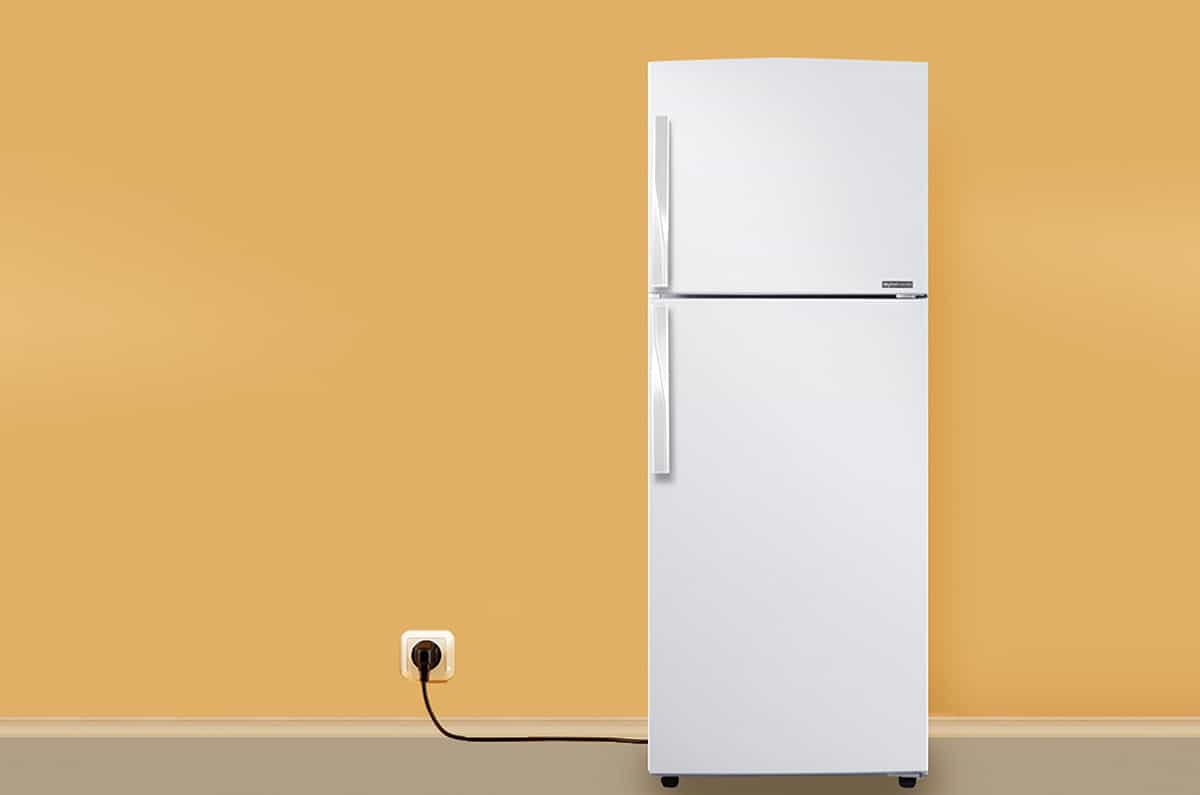Refrigerators, the silent workhorses of our kitchens, preserve our foods and keep our drinks chilled. Over time, their role has evolved, and safeguarding access to their interiors has become increasingly more important for many households.
Whether to prevent little explorers from midnight snack raids, ensure the safety of elderly family members, or maintain the overall sanctity of our groceries, a secure lock system is an addition you may need.
There are several types of refrigerator locks, including:
- Padlock and Key Systems
- Combination Lock Systems
- Magnetic Lock Systems
- Adhesive Strap Locks
- Digital and Smart Locks
This guide will uncover the significance of each type of fridge lock, its advantages, and tips for choosing the right one for your home.
Primary Reasons to Install Refrigerator Locks
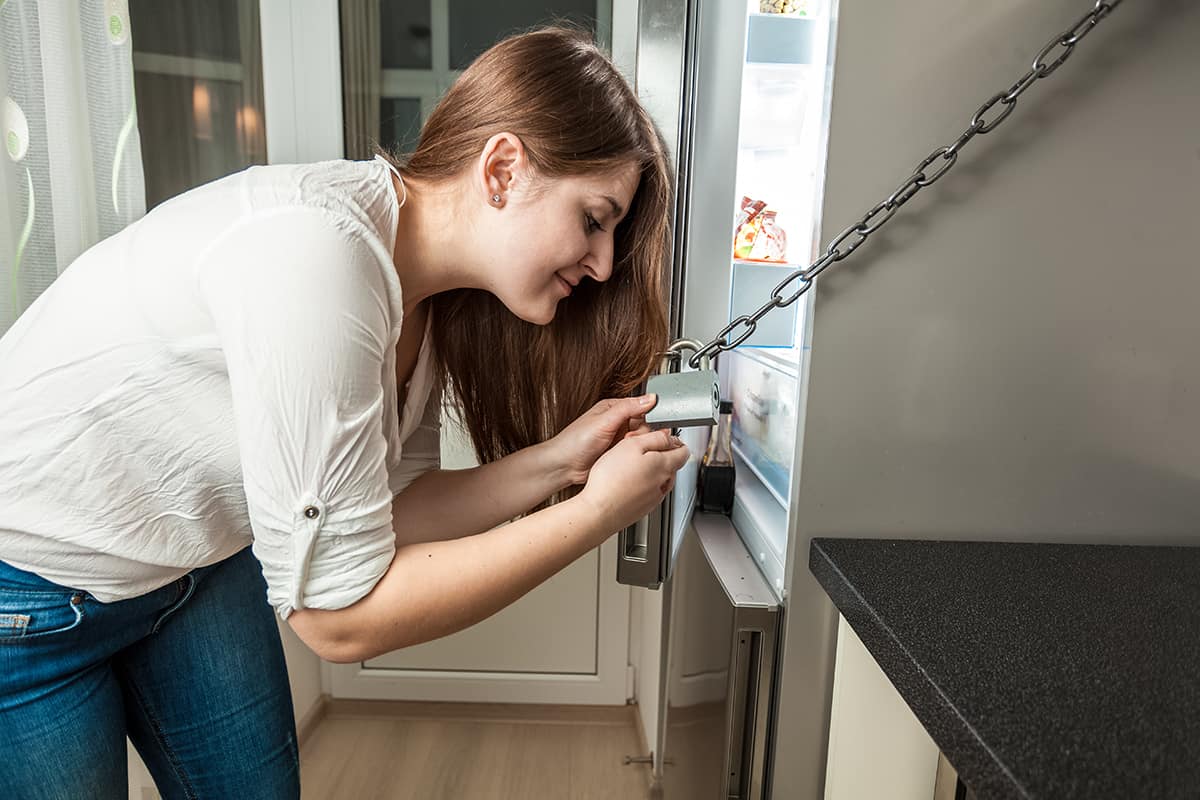
If you’re reading this guide, you probably have a reason for keeping your fridge locked up. But here are a few more reasons that will fortify your decision to get a refrigerator lock:
1. Child Safety
Young children are naturally curious. A lock keeps them safe from accidentally consuming items not meant for them, like alcoholic beverages or medicines stored in the refrigerator. It also prevents accidental door closures, which can trap or injure a child.
2. Dementia Patient Safety
Individuals with dementia or Alzheimer’s can inadvertently consume expired or harmful foods. Refrigerator locks act as barriers, ensuring that they access the fridge only under supervision.
3. Preventing Food Theft
In shared housing or office settings, food theft can be a recurring issue. A lock serves as a deterrent, safeguarding your groceries and meals from disappearing.
4. Energy Efficiency
Unknowingly, refrigerator doors might not close properly or can be left ajar, wasting energy and compromising food freshness. A lock ensures the door remains securely shut, promoting energy efficiency and prolonging food shelf life.
Types of Refrigerator Locks
To prevent any of the aforementioned mishaps from occurring in the future, you should get a lock for your fridge. The only question is, what types of locks are available? Below, we’ll detail each lock and provide their ups and downs.
1. Padlock and Key Systems
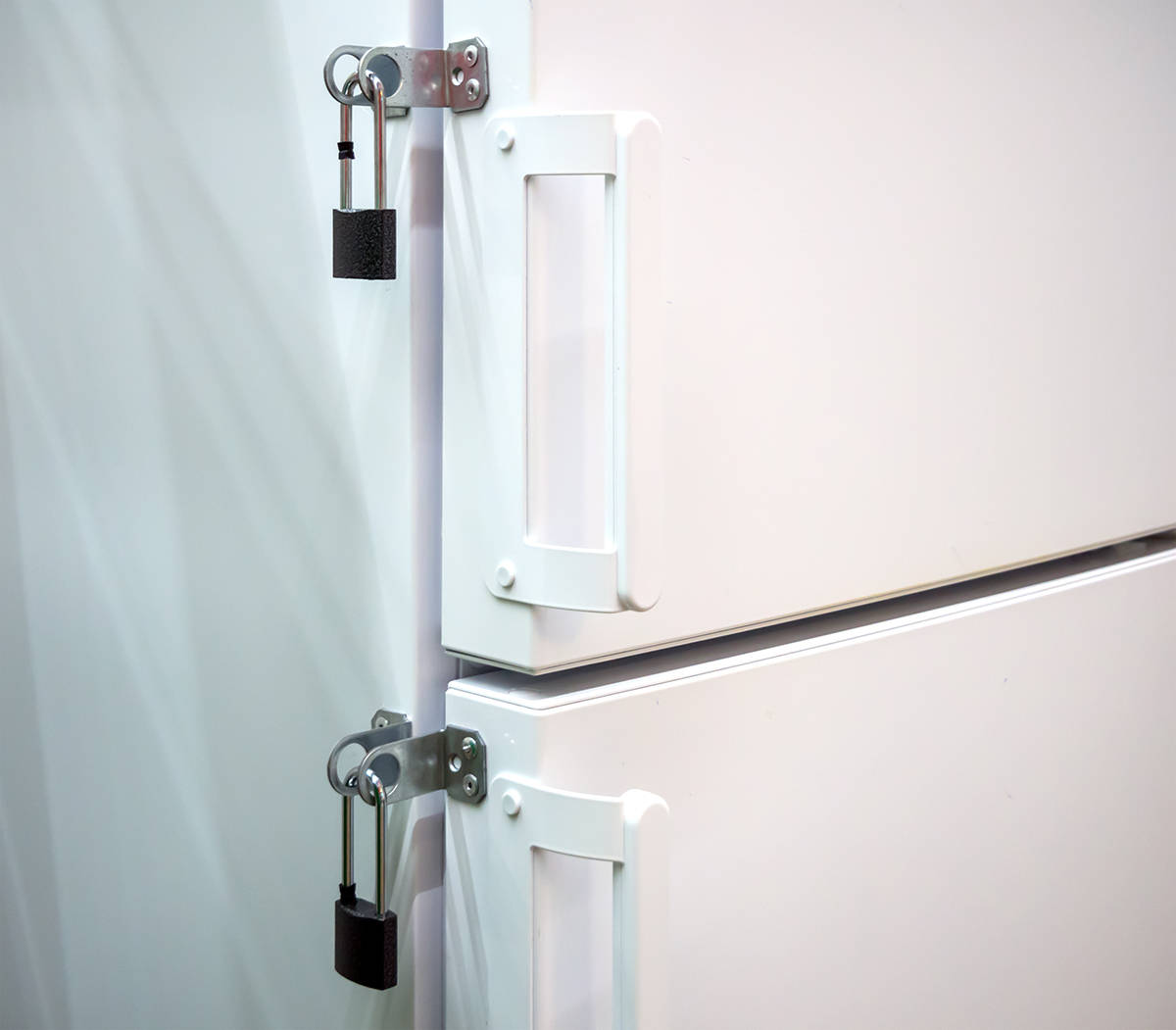
A traditional yet effective method, padlock and key systems are easily recognizable. They consist of a hasp and a padlock.
Pros:
- Reliable and durable.
- Easy to replace if the key is lost.
Cons:
- Can be cumbersome to use multiple times a day.
- Risk of misplacing the key.
Ideal Situations for Use:
- In environments where access to the refrigerator is less frequent.
- Where traditional security methods are preferred.
Our Recommendation:
The CPS Refrigerator Padlock is a black security solution designed primarily for refrigerators. It aims to safeguard contents such as medicines, alcohol, and other items, ensuring they remain inaccessible to unauthorized individuals.
The product employs the most robust 3M VHB tape, ensuring a permanent installation. While it serves as a childproof lock, its strength makes it equally effective against adult intruders. The package comes with a keyed padlock. Additionally, the company stands by its product quality, offering a full one-year guarantee that covers both refunds and replacements.
2. Combination Lock Systems
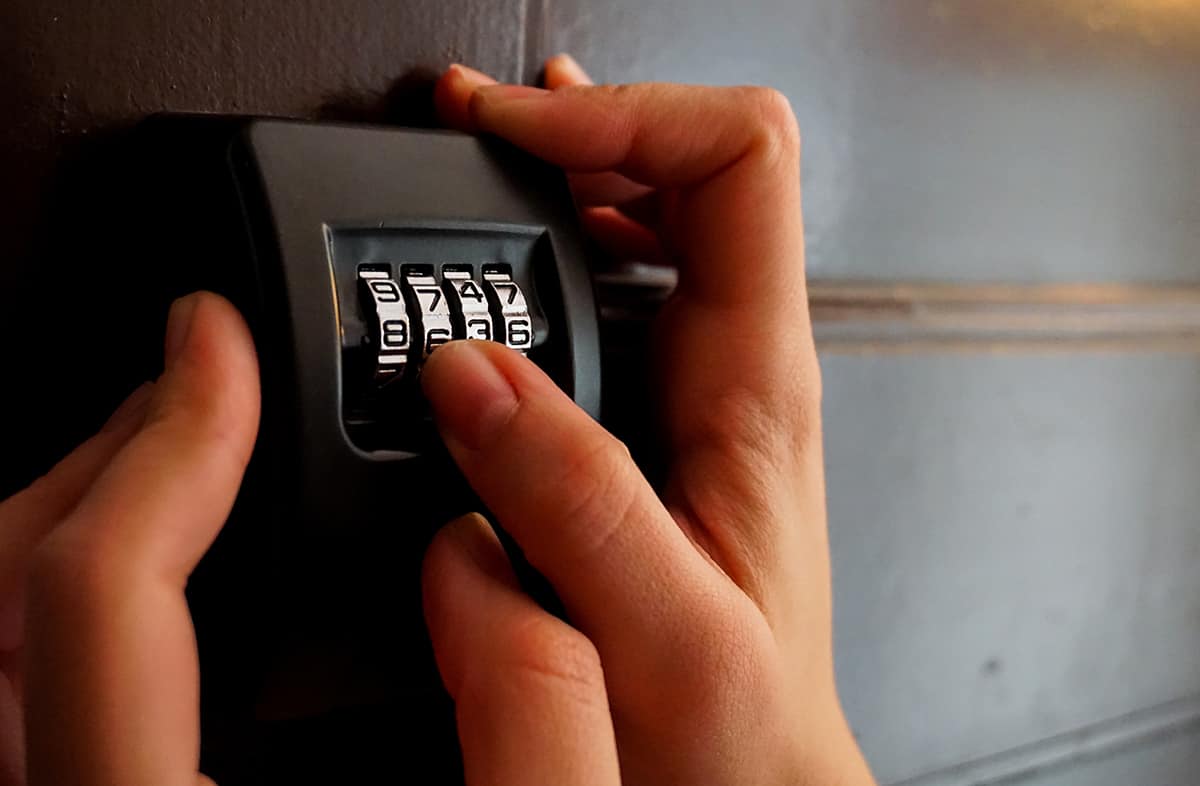
A step up from the conventional padlock, these locks use a set of numbers or symbols as the unlocking mechanism.
Pros:
- No keys to lose.
- Ability to reset combinations.
Cons:
- Might be challenging for some to remember combinations.
- Potential security risk if the combination is easily guessed or not changed frequently.
Ideal Situations for Use:
- Shared living or office spaces where multiple people need access.
- Settings where key management can be a hassle.
Our Recommendation:
The Urban August Refrigerator Lock for Kids is designed to prevent unauthorized access, particularly from children sneaking into the fridge. Constructed from premium stainless steel, it ensures robust protection, especially during nighttime. This lock is versatile, fitting all French door refrigerators and numerous other appliances.
Installation is straightforward: wrap it around the refrigerator door handles, set the combination, and it’s ready. Though it provides a strong deterrent, users are advised to exercise discretion, acknowledging potential vulnerabilities.
3. Magnetic Lock Systems
Utilizing magnets’ power, these locks provide secure closure until they’re disengaged with a magnetic key.
Pros:
- Often discreet and not easily noticeable.
- Quick and easy access with the magnetic key.
Cons:
- If the magnetic key is lost, access can become difficult.
- Might not be as sturdy as other types of locks.
Ideal Situations for Use:
- Households with children, as the locks are often child-proof.
- Those seeking a more aesthetic, less visible locking solution.
Our Recommendation:
The EUDEMON Childproof Refrigerator Lock is a safety feature designed with a focus on child protection. It boasts a robust resistance, capable of withstanding a pull of up to 120N (12 kg). While offering strong security, its compact design and invisible switch seamlessly blend with home decor, and it remains inconspicuous to children while being easily accessible to adults.
The lock’s transparent design exudes elegance, ensuring safety with its smooth surface. Installation is hassle-free, utilizing the robust 3M VHB tape that adheres effectively after 24 hours and can be cleanly removed with a hairdryer.
4. Adhesive Strap Locks
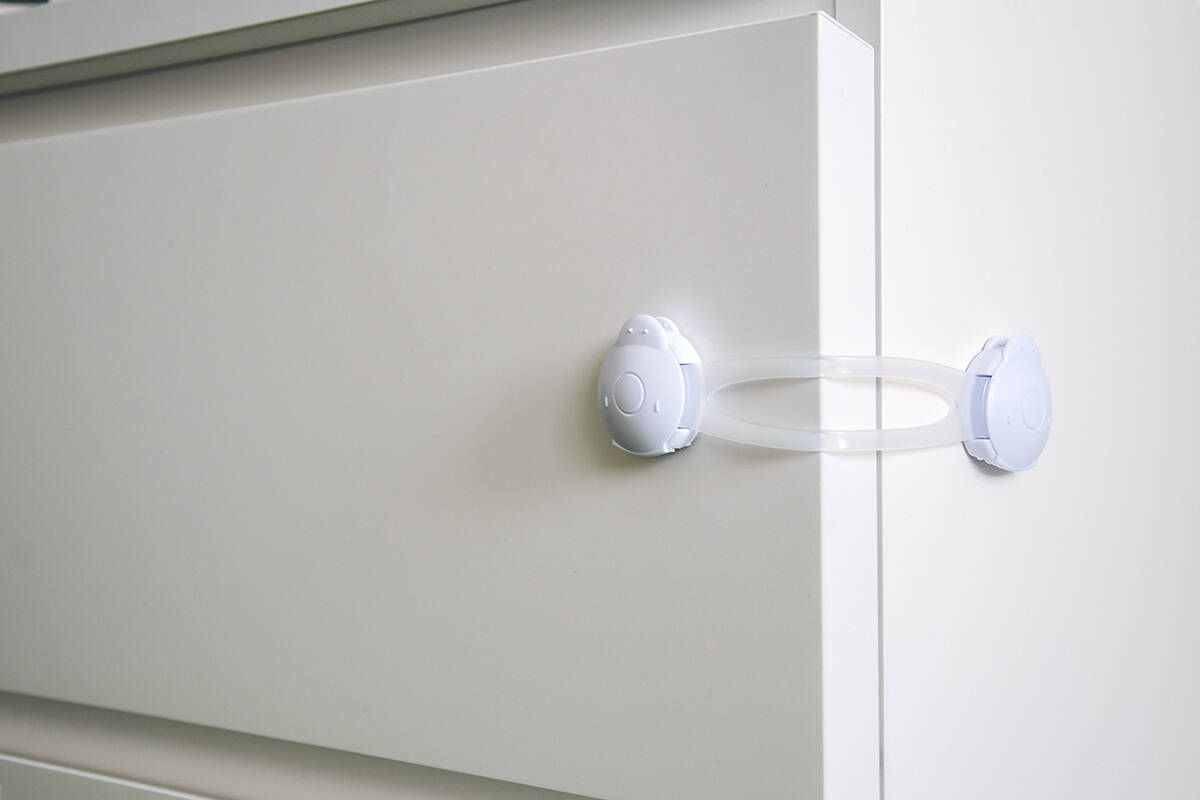
As the name suggests, these locks use adhesive straps that stick to both the fridge and the door.
Pros:
- Easy to install without the need for tools.
- Adjustable lengths can fit various refrigerator models.
Cons:
- Over time, adhesive might weaken, requiring replacement.
- Might not provide a very high level of security.
Ideal Situations for Use:
- Temporary living situations or rented homes where permanent changes aren’t desirable.
- As an additional precautionary measure alongside other lock types.
Our Recommendation:
The BoomBa Refrigerator Fridge Freezer Door Lock is a specialized lock tailored for refrigerators. Its design ensures smooth operation without drawing the attention of babies. Universally fitting, it seamlessly integrates with most market refrigerators, eliminating concerns about jamming during door operations.
With user-friendly functionality, adults can easily unlock it using one hand by simultaneously pulling its two buttons, whereas it proves challenging for babies and children. The lock’s auto-locking feature further simplifies its use. Aesthetically, its T-shaped design facilitates an uncomplicated installation, with a large adhesive area ensuring stability and strength.
5. Digital and Smart Locks
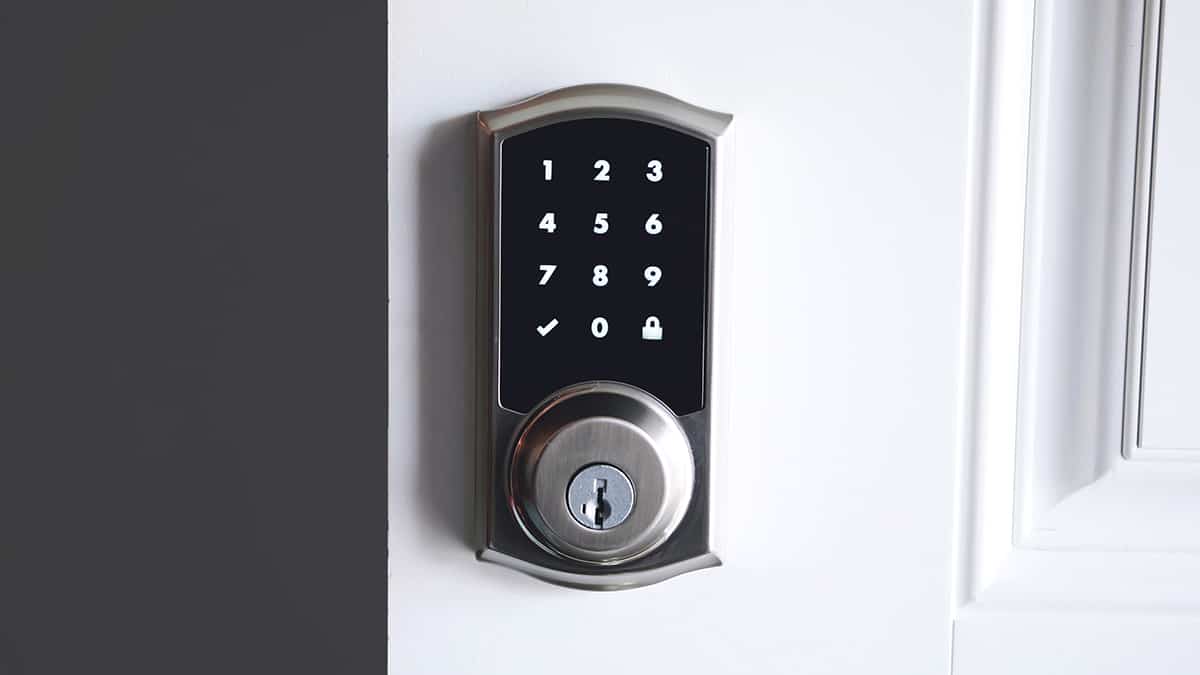
Incorporating technology, these locks might have features like fingerprint recognition, Bluetooth connectivity, or even mobile app controls.
Pros:
- Offers high levels of security.
- Convenient for tech-savvy users, with multiple unlocking methods.
Cons:
- Typically more expensive than traditional lock systems.
- Might require periodic battery replacements or charging.
Ideal Situations for Use:
- Modern homes equipped with other smart devices.
- For those who prioritize high-end security features and conveniences.
Choosing the Right Lock for Your Needs
Due to the wide selection of refrigerator locks, choosing the right lock can be a challenge. Here, we’ll provide a brief guide to help you decide which lock is best for your home.
1. Type of Refrigerator
Different refrigerators may require varied locking mechanisms, like French doors, side-by-side, or top freezer designs. Understand your fridge’s design before purchasing to ensure compatibility.
- French Door Refrigerators: Often, these need locks that can secure both doors effectively.
- Single Door Refrigerators: A straightforward lock that attaches to the body and the door usually suffices.
- Side-by-Side Refrigerators: These might necessitate a longer or adjustable lock, given the proximity of the doors.
2. Purpose of the Lock
Defining the primary reason for the lock helps in narrowing down options:
- Child Safety: Opt for locks that are challenging for children to decode but easy for adults.
- Medicine Storage: A robust lock ensuring unauthorized access prevention is vital if your refrigerator stores medicine.
- Alcohol and Beverage Security: A lock can keep your drinks secure, especially if hosting parties or having teenagers.
3. Ease of Installation
Most homeowners prefer hassle-free installation. Take the following into account when deciding on the optimal fridge lock:
- Adhesive Locks: These are easy to install, requiring you to stick them. They are robust but can be removed without damaging the refrigerator’s surface when not needed.
- Magnetic Locks: Often hidden inside cabinets or drawers, they require a magnetic key for unlocking, ensuring a clean outer appearance.
- Combination Locks: These require no keys and can be set with a code, balancing security and convenience.
4. Customization and Adjustability
Some locks offer adjustability, catering to varied fridge designs and sizes:
- Adjustable Straps: These can be modified in length, making them versatile for different refrigerator models.
- Customizable Codes: Combination locks where codes can be reset provide flexibility and increased security.
FAQs
1. Do fridges come with built-in locks?
Yes, some refrigerators do come with built-in locks. However, these locks are often basic and might not provide the level of security needed for specific purposes. Many built-in locks are designed for general use and might not deter a determined child or adult. For enhanced security or specific needs, we suggest looking at different aftermarket refrigerator locks.
2. Can I install multiple types of locks on my refrigerator?
Yes, you can install multiple types of locks on your refrigerator. Combining different locks can provide an added layer of security. For instance, you might use an adhesive lock for everyday childproofing and add a combination lock for times when you need extra security. Make sure you don’t lose your set of keys, forget the combination, or damage the magnets in any way!
